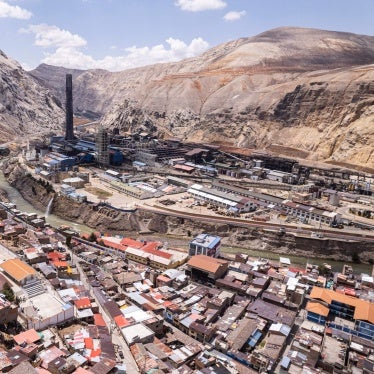The humanitarian crisis of undocumented Central American children may have faded from the headlines, but the problem has not gone away—not least because Congress failed to pass a bill addressing the issue before it left for the August recess. Both President Barack Obama and Sen. John McCain (R-Ariz.) have floated proposals to process the kids in their home countries and admit a set number to the United States as refugees or with some other humanitarian status. Senator McCain also proposes to quickly deport child asylum seekers who arrive irregularly.
The White House pointed to in-country processing from Vietnam and Haiti in the 1980s and ‘90s as models. But Vietnam and Haiti, in fact, are models for how not to process refugees. These programs demonstrated how in-country processing can be a pretext for blocking access to asylum for people with immediate needs to flee persecution and who can’t wait in the orderly departure line or take the chance of returning to the country they fled. The programs turned basic refugee principles on their head.
Both programs were largely intended to stop departures of “boat people,” and they succeeded. For the Vietnamese, the Orderly Departure Program was used to induce asylum seekers languishing in camps in the region to return to the country they had fled, making it their only means to seek U.S. resettlement. Some 80,000 Vietnamese chose “voluntary” return to a country they had already risked their lives to flee.
For the Haitians, in-country processing was used as a rationale for interdicting and summarily returning asylum seekers heading for the United States by boat. In May 1992, President George H.W. Bush ordered the return of all interdicted Haitians to Haiti without interviews or processing to determine possible refugee status.The White House advised would-be refugees to apply at the U.S. consulate in Port-au-Prince for in-country refugee processing.
Strict criteria, huge backlogs and the danger and length of the application process meant that only a relative handful of people were able to avail themselves of this program, while far larger numbers were being summarily returned.
By May 1994, 54,219 had filed applications, representing nearly 106,000 people; only 10,644 cases had been decided, and only 7.7 percent of those cases were approved. On Aug. 1, 1994, Haitian police and paramilitary forces attacked a line of applicants waiting for refugee processing, beating and arresting a number of them.
The Haitian and Vietnamese in-country processing programs—ironically and perversely—required that people who wanted to apply not be afraid to wait for the prolonged process to conclude and not be so afraid of their government’s reaction that they would avoid seeking permission to leave. Both programs indeed benefited thousands of people, but both also looked very much like immigration programs masquerading as refugee programs.
The term “refugee” is defined as someone already outside his country and unwilling or unable to return owing to a fear of being persecuted. The Universal Declaration of Human Rights guarantees the right of anyone to seek asylum “in other countries.” Article 33 of the 1951 Refugee Convention forbids the return of refugees to places where their lives or freedom would be threatened—the principle of nonrefoulement.
But when U.S. immigration officials deny admission to victims of human rights abuse still inside their own countries, they do not violate the legal bar on forcible return since people cannot be returned to a place where they already are.
A completely discretionary program by which U.S. officials choose which and how many children they wish to take does not come close to meeting international legal requirements to protect refugees. Still, it would undoubtedly help some people, so what’s the harm?
If an in-country processing program were to be established in Honduras, the suggested “pilot” country in the White House plan, there would probably be an immediate hue and cry that “illegal” Honduran asylum seekers who are already in the United States are “jumping the line” and that they should go back to Honduras and “wait their turn.” It does not take a great leap to conclude, as Senator McCain already proposes, that asylum applicants would be instructed to return to their home country to apply for refugee status or that in-country applicants would be given preference over applicants arriving irregularly.
If this proposal were merely about setting up a preferential immigration category, “waiting your turn” would make perfect sense. But it makes no sense for the boy who signs his death warrant by leaving or disobeying a gang that forcibly recruited him. Such a boy needs to escape the gang’s clutches immediately. If this program is supposed to be about protecting children like this, it cannot be treated as the exclusive means for seeking U.S. protection. If the United States does establish an in-country processing program, it would have to explicitly make allowance for children who cannot safely wait their turn and who are compelled to flee for their lives.
It is laudable that President Obama and Senator McCain seek safe alternatives to the dangerous journey that increasing numbers of children have been taking through Mexico, but given the political realities in the United States and America’s poor track record, there is little reason for confidence that an in-country processing program would serve the protection needs of the most vulnerable people in the most imminent danger of serious harm.
Bill Frelick is director of the Human Rights Watch Refugee Program








